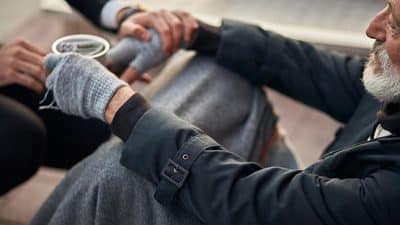
COACH LONDON: I’ll just say that this has been a good week for our guys coming off of this past victory against Louisville where we learned that you have to play your best football. We’re still a long ways to go because we’re getting ready to play another top-25 team in BYU at their place. It’s our first road test. But going through last week’s practice and the amount of energy that was put into it, we’re going to have to do the same thing again because this is a really good football team.
I’ve been really happy and pleased with the leadership on this football team. It’s a lot different than what it’s been in the past. To have guys step up and want to be accountable, responsible, has been really, really a positive part of this program, of this year.
With that being said, I’ll answer any questions.
Q. What was the level of optimism after the win over Louisville?
COACH LONDON: We won a football game. That was the most important thing. The fact that winning a football game when you compete on the field and you put your effort and energy into it, came out in a successful manner as it did on Saturday.
So the main focus is always about winning and starting, that type of attitude.
Q. Mike, you were on the defensive staff in 2007 when Virginia played at altitude against Wyoming and they went no huddle. You’re going out to play at altitude again Saturday against a team that plays no huddle. What do you recall – if anything – about the effects of altitude that night on the defense and defensive depth and how you’ll play this week?
COACH LONDON: There’s no doubt that you have to we talk about a simple thing like hydration. On the flight out there, we have to hydrate. We have to drink. We’re going to have to play more players because, obviously, they are accustomed to their home and that environment. So we’re going to have to play more players.
It particularly affects players with sickle cell trait because of the altitude. There’s a few players like that on our team, maybe theirs, I don’t know. There are a few things you can do there. I don’t know.
The big thing is to try to plan a schedule where we plan it on our time frame, not theirs. So our bodies are used to, when we get up and when we eat, just try to stay as close to that as possible. I’m sure they had to do similar when they flew out to here last year. But there are some things you have to do, be aware of, and educate your players on in order to be ready.
Q. So we heard earlier that you got a call at 10:00, 11:00 Saturday night from Henry Coley, or a text or whatever. Is that common? When you see its Henry Coley, what are you thinking?
COACH LONDON: It was a good call. Let’s put it that way. In fact, Henry said, ‘Coach, I’d like to call a team meeting. What’s the process to do that?’ Of course, there’s ways we can reach out to all our players through text or e mail. I didn’t ask him why. He just said ‘I want to get the players together. The captains want to get the players together.’ So we facilitated that request, and I have not seen Henry yet, and I haven’t asked him.
But I’ve heard the chatter up and down the hallway and in the locker room about staying focused and not settling for anyone, and, again, that’s something different that we haven’t had in the past.
Q. How unusual is it for you to get a call?
COACH LONDON: I get calls from players all the time. Sometimes just to talk about issues that are going on academically, personal, family. And that’s what head coach is for. You have to be able to be accessible and available to players. My door is an open door policy. When guys feel like they can come in and talk. I encourage them to call me on the phone to visit any issues as well. So it wasn’t –
Q. At 10:30 or 11:00?
COACH LONDON: I don’t know. It’s hard to put a finger on why or who or when or what or where, but I know at this time, on this occasion, it was something that he and the rest of the captains wanted to make sure their team got the message about.
Q. What kind of a gift is that to a coach? Because you’ve been in here previous years, and last year you had five seniors. You can’t force someone to take that kind of leadership unto themselves, but what’s it like for you to have somebody step up. It sounds like Henry is just not tolerating people accepting the last two years, and come hell or high water, people are going to get behind what he says, what you say, and whatever. What kind of gift is it to have a guy who, A, commands that kind of respect, and, B, steps up and takes that stance.
COACH LONDON: It’s a maturity level that Henry has that he’s possessed. It’s the growth that he’s had as a player here. Again, he’s a two time all academic ACC performer.
Our team voted on the captains that they wanted to represent them, and I think the ones that are our captains are very representative of guys that do things the right way, that demand the best of themselves and their teammates. So when you have an older group of guys like that and the message is consistent and the theme is constant.
And as I said before in this room, these guys are going out now. They want their legacy to be something positive, something that can last that will last for other guys that are in the program now. But it’s been a tremendous amount of maturity that these guys have shown, that they want results and that they’re going to demand them from their teammates.
Q. Kind of speaking to that, you got a big win on Saturday. In your words, a long time coming. Did you ever for a second worry about how your players are able to handle success that you hadn’t had in a while? Did that maybe settle your question when you got that call from Henry last or Saturday night? Wanting to call a team meeting to kind of talk about, hey, there’s still more work to do.
COACH LONDON: Interesting, after the game, after the victory, in the locker room, after the all up with the team, I say my piece. We have little celebration there. After I was done, then I believe, one of the captains like I couldn’t quite make out the voice, called everybody back in again and said, hey, listen, don’t do anything dumb tonight. We’ve still got a long way to go. We’ve got to focus on getting ready for BYU.
So that those type of things or that type of leadership is the kind that can take you a long way. There’s a buy in to these guys, and we’ll continue to keep having that buy in because, like I said, we’ve got really good opponents ahead of us, but the first one what’s foremost on our mind is BYU.
Q. In football, they talk about momentum games, and maybe in the past hasn’t been you guys haven’t had that many. Right now you guys have some momentum. Do you believe in that? How does the momentum change the complexion of the team in the locker room?
COACH LONDON: What I believe in is the psychology of winning, the psychology where we’re all ruled by results. When you have a chance to win and guys are having success and doing some of the things that their coaches have asked them to do, and they see it leads to opportunities. It creates opportunities. Also, you see that it leads to taking away opportunities and you learn from those things. So success breeds success. There’s a lot of programs out there that have won a lot. When you haven’t won a lot here recently for us that, when you taste it, then you want more of that taste. You want more of that feeling. I believe this is what this group has right now is to continue the ‘whatever it takes kind’ of mantra to have opportunity to be successful.
So that’s probably the best way I could answer that.
Q. Last year BYU, I think, ran 93 plays here, but yet you guys held them to a season low in yards. Without giving away the game plan, what were you guys able to do so effectively, defensively against them last season, and how much of it do you think was Hill’s first game with a new coordinator.
COACH LONDON: Every year a team is reborn, the identity is forged. You find out who the players are. Our biggest stride was made during the summer spring/summer moment when guys got bigger, faster, stronger, and their knowledge of the offense or defense increased.
For Hill, I would say it’s probably the same. His knowledge of the offense, his experience level, his football IQ, all those things that he has been coached to do has gotten better. He’s a tough runner. He can throw the ball.
Their style of offense makes you it’s a kind of almost an assignment oriented offense where any person at any time could run the ball, and he’s a focal figure that just when you think you have the dive or you have him, he’ll pull it out, and he’ll throw it to a receiver. So the offense fits the skill level that plays really well to what he can do and what he does, and he’s a very good football player.
Q. Mike, in your six years as a head coach and maybe in your entire career, how often have you had these sort of team meetings among players or captains meetings. Does it happen fairly often, or is it sort of unusual?
COACH LONDON: Unusual after a win, a big win, but the captains always have the opportunity to call meetings whenever they feel fit. Sometimes it’s after practice. This happened to be one that was after a win, you know, called me at night to do it.
But as I said, this is a special group, a special group of individuals, and I’ve been around a lot of good teams, as an assistant and even in my head coaching years. Particularly at Richmond, we won the championship. There was a group of senior leadership there, and there’s a group of senior leadership here that really has emerged as far as what they want for this team and what they expect of each other.
Q. Coach, over the weekend, you also got some other news, some great news from the recruiting front as well with Grant Polk signing his Grant in Aid. How great was it having a guy already signing in and being part of the 2015 class?
COACH LONDON: Because he has signed, I can talk about him. Grant is a big guy, big tackle. That’s what we want. We want size guys like he is. He and his family came up, and they like the area, and it’s the right fit for him.
Having an opportunity to have a young man come midyear, get acclimated, as I go back to David Watford, Andrew Brown, Jake Fieler, LaChaston Smith I can go back over the different names that have come here mid-year and had a chance to become a college student athlete, and we’re looking forward to Grant being here as well.
Q. You got a little more depth with Sadiq back on the offensive line than you had before. Would you like to get to a point where you had five guys basically playing the whole game, or do you see Mooney and Sadiq trading off and Cody Wallace and Doull trading off and using a number of guys?
COACH LONDON: We’ll see how that plays out. Our practices again in a lot of positions will determine who plays. There might not be just a group of five guys. There may be seven or eight offensive linemen that go in the game. When Sadiq had his issues with penalties, Michael Mooney went back in and did an admirable job. An unsung hero in that group is Ryan Doull, who started all the games.
We’ll just continue to keep evaluating our guys and play the players that give us the best chance, and this is one of those games, again, as we just talked about going out and playing at someone else’s home field, that we need to be ready to play a lot of players anyway.
Q. Along those same lines, playing a lot of players, you give up two fourth quarter touchdowns to Louisville. I think the only defensive touchdown you gave up to UCLA was either in the late third or in the fourth. Has fatigue been an issue at all defensively in those two games, in your mind?
COACH LONDON: You know, David, it may have some factors involved with it, but missed assignments and misalignments, that has mental errors has even probably a bigger factor of it. One of the things that also occurred in the game that’s pretty special is that there were two sudden change moments where our defense came in and held them and they got no points
That whole energy level where you’re tired or ready to go, I can’t quite put a finger on it, but I know that at times, when the occasion was needed for somebody to make a big play or a stop, that our guys executed, and that was big for us.
Q. Mike, you’ve talked about Henry’s leadership qualities, but just talk about his toughness and what he brings to the field as a linebacker and where he rates in terms of linebackers you’ve coached over the years.
COACH LONDON: Again, Henry is a guy that has he’s very mature, very serious about getting his degree from this University. As I said, two time All-ACC Academic performer. Knows the defense, can call the plays, can get people lined up, is a rugged, tough player.
I’ve been around here with a lot of linebackers. After three games, it’s still early, and maybe if you ask me the question mid-year, towards the latter part of the year, I can give you a better evaluation, but I know right now at this point he’s as good as any leader that’s been here since I’ve been here or any other place.
Q. Mike, you were forced to make some tough decisions with your coaching staff a couple years ago. How much of what we’re seeing on the field could you see maybe behind the scenes a year ago with this new coaching staff? How much of this is year two with these coaches and just were there any points where you wondered if the decisions you made might not work out?
COACH LONDON: You know, there are always tough decisions that you make or have to make when you have to make staff changes, and with me, really good friends are the men that were on this staff. They’re good coaches.
But you make decisions that are in the best interest of the team overall, and the coaches that came in with the styles and the philosophies, particularly being the second year now, the players have got acclimated to it. I believe that Jappy Oliver and Mike Archer have been a tremendous help. You can’t see it on the field, but you can see it and sense it in the practices, in the meeting rooms. They know this defense. They played in it before. They know Jon (Tenuta). They’ve coached with him. So it’s made the terminology and the transition has made it a whole lot easier.
Then you’ve got players that buy into it bigger, faster, stronger. Then those things seem to put themselves together. The staff is a very good staff. I believe it’s one of the best staffs in college football when you look at the accomplishments of the individual men that are here.
And now the ability to transfer what we know to them, and it’s always going to be about what the players do on the field that matter how much we know. They’ve got to do it on the field. And thus far in a lot of situations they’ve been able to translate that onto the field.
Q. Mike, the Taysom Hill that was here and then the one that ran for 260 yards against Texas like a week or two later, completely different guys. On top of that, I guess BYU could maybe say that you guys stole that game from them last year. How much does a program kind of look ahead a year, or how much do you expect that they’ll be looking to kind of give you guys one back after the way last year went?
COACH LONDON: I would believe that Coach Mendenhall will have his guys ready to play. Obviously, it’s a home game for them. The results of the football game last year were the results of the game. We happened to be on the winning end of it. That was kind of a two plus hour rain delay, storm delay, if you recall. Again, it’s football. A lot of things happen during the course of a game.
I don’t know if they’re as much worried about payback as they are trying to go 4 0, as they are trying to win a game at home, as we are trying to win a road game against a top-25 team once again, a team that we played last year.
That’s our that’s where we’re coming from. I’m not quite sure how Coach Mendenhall is approaching it or how he’s approaching it with their players. For us, it’s a chance to go on the road, a chance to improve and get better and play another top-25 team and keep moving forward.
Q. You alluded to the two hour rain delay. I guess the film that you looked at from last year is cut up so you don’t get the delays. But just reflecting back on that game, is it still as bizarre as it seemed at the time with the rain coming in and all that time between stops?
COACH LONDON: You know, Doug, when you look at the film, there’s no rain issues. You’re just looking at play after play after play. So you really don’t you’re not really thinking about the situation and the circumstances at that time. What you do, you’re looking at formations. You’re looking at play tendencies, and then you add that with the teams that they played this year. Is there any familiarity? Is there any carry over?
So those are the biggest elements right now. As I said, us traveling out there and just being ready to play from a mental and physical standpoint is going to be important, but also being prepared. Being prepared to perform and execute is the biggest thing for us, and that’s what we’ll work on this week. We practice Tuesday, Wednesday, Thursday, and then we head out Friday.
Q. You pretty much forgot just like everything else, it’s back in the memory bank?
COACH LONDON: Basically, we played them, and we won the football game, and we look at the tape of what they’re doing now and what we did against them last year. That’s all that matters right now for us.
Q. To back up on what Mark said, but this is specific to your special teams coaching change that you had to make a couple of years ago. I know it’s interesting because it sounded like Jeff Banks was hired, and obviously, you had to bring in Coach Lewis there like a week later. What were you looking for in bringing in a special teams coach? Obviously, in 2012, you had your issues there, didn’t really have a set guy, things like that. What are you looking for, and are you seeing the results you want here two years later with Coach Lewis?
COACH LONDON: Well, definitely looking for the production from each of the elements of special teams. The performance thus far for our guys has been really good. I mean, obviously, our kickoff return, our kickoff cover, I believe they’re in the top ten in the country. One is nine. One is three.
And when you have when you start your average field position was at the plus 46 for us and it was for the plus 22 for them, that’s a significant amount of real estate right there that you can operate on, and that’s been the biggest change is that how just all really how all three facets of your football team, how much of an integral part they are to the success.
You just don’t realize at the point, in terms of special teams and where you spot the ball, but then when you start looking at the number of drives and the time consumed for drives, it all fits in. Larry has done a wonderful job of putting everything together.
Again, we have to make sure we do what we need to do because they’re a pretty good punt return team, and the field position, once again, will play a pretty significant part.
Q. I don’t know how much of Canaan you heard I don’t know if you were standing back there. But he essentially described how he needed to be pushed. You and Coach Hagans really needed to extend him behind what he thought he could do. How much more did you have to push him than you would, say, another player, and how rewarding is it to you as a coach to see the results?
COACH LONDON: It was interesting. I was standing right here listening to Canaan, and you asked the question. I would just say this. He and his father are the two that were involved in his process, and he obviously, he didn’t want to share any more of his personal story, and that’s his right. And I won’t speak on that myself.
But I can say that sometimes young men get here, and they bring all the football accolades with them and all the bravado and think that they’ve arrived, and sometimes you have to take that edge off them a little bit and introduce them to, no, you’re a student first. This is what you have to do in school. These are expectations. If you’re not going to class, if you’re not doing those types of things, then you probably won’t be one of the best in shape freshmen in the history of college football.
So I think that he got the message early, and then at this point of his career, changed his body, changed his diet. He changed a lot of things about him. So he really wants to be successful.
And you see that now. And that’s what’s gratifying more than anything else, David. You guys know I’m in it for the development of the players. When you see a guy, take a guy at the beginning, he’s rough around the edges. You can smooth the edges. You get him to think about life after football, about education, about being part of a winning culture and a team, that’s that guy right there. That’s him. That is Henry Coley. That’s Tra’ Nicholson. That’s Eli Harold. I could go on and on with the different guys on the team.
But specifically for Canaan, it was a rude awakening and an eye opening experience and one that he’s flourished in right now.
Q. Coach, Louisville plays three four on defense. I think BYU does too. Is there any advantage to playing three four back to back, and are there any similarities or differences between the styles?
COACH LONDON: They’re a multiple front as well. BYU is more of a they have bigger down guys. Their front seven is pretty good. There are always different elements of a three four slant angle, two gap, and we’ve heard those terms before. But they are a very big and aggressive defense, and I believe right now they are one of the top -5 in the red zone. They’re only giving up 14 points a game, which is tops in the country as well.
So there’s a lot of things that they do well and a lot of things that we’re going to have to improve our game upon in order to effect the scoring or opportunities to get in the red zone or anything like that. But they’re very good, as I say, thick, heavy defense that plays well and runs to the ball.
Q. How comfortable are you with the defensive line depth you’ve been able to develop? Given the altitude and given the tempo that BYU plays with, how do you feel that might come into play this week?
COACH LONDON: Those are one of the things we’re going to have to address as well. We’re going to have to play a lot of players, as I said. Louisville started out with a no huddle, different formation lineup, get up and go.
Everybody has projectors. So we’re going to have the way you handle that is making sure the guys are available and ready to go in when you call for them. So playing a lot of players is going to be important for us this week.
Q. With your history of players on the defensive line and things like that, this may be an obvious question, but how important is it when you have the edge rushers you have to make it easier on the rest of the unit when Max and Eli are rolling like they are?
COACH LONDON: When you can play applied pressure on a quarterback, whether it’s the hurries again, I believe Max had four pass deflections, which that’s pretty neat. That’s pretty good if you can do that. If you can’t get to the quarterback, then you’re effective throwing your hands up. Or throw your body at the quarterback for the sack.
Sometimes what happens, the cumulative amount of toll it takes on a quarterback when you hit him.
So having guys like that I remember when I was in the NFL with the Texans, and we were playing the Indianapolis Colts, Coach Dungy was like, how do you play this particular route? He said, that’s up to our pass rush. And they had Dwight Freeney and guys like that.
A lot of times, we said before, your best pass defense is your pass rush, your pass rushers, and I believe Max and Eli do an outstanding job of providing that.










